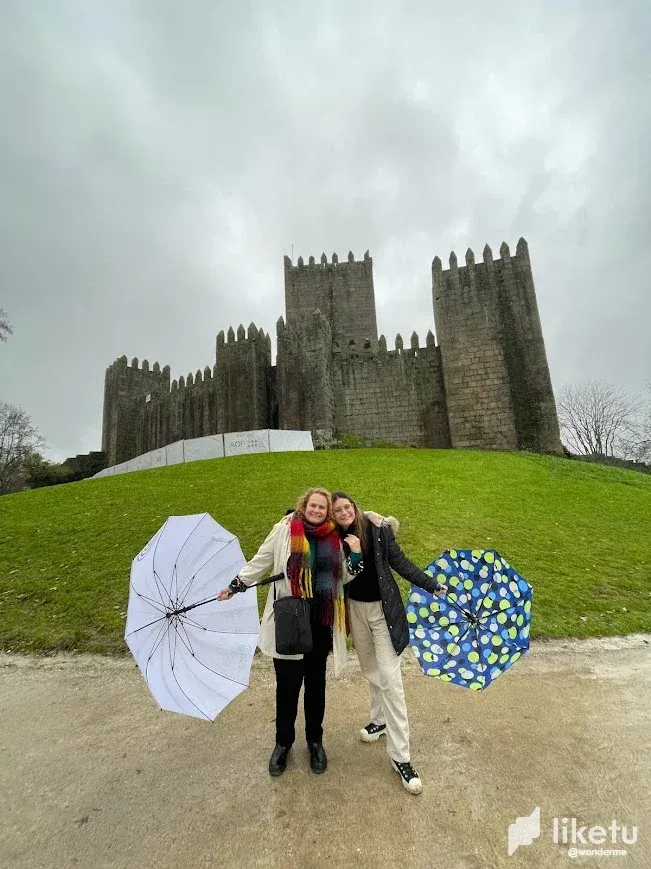
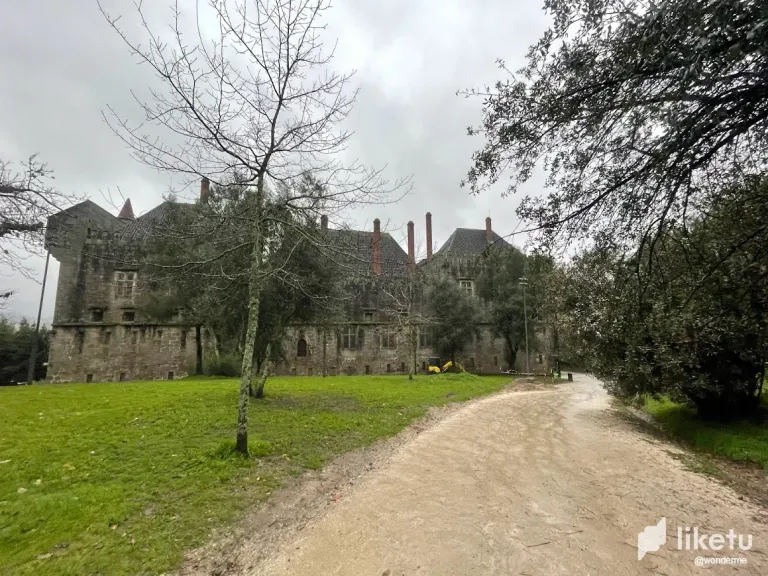
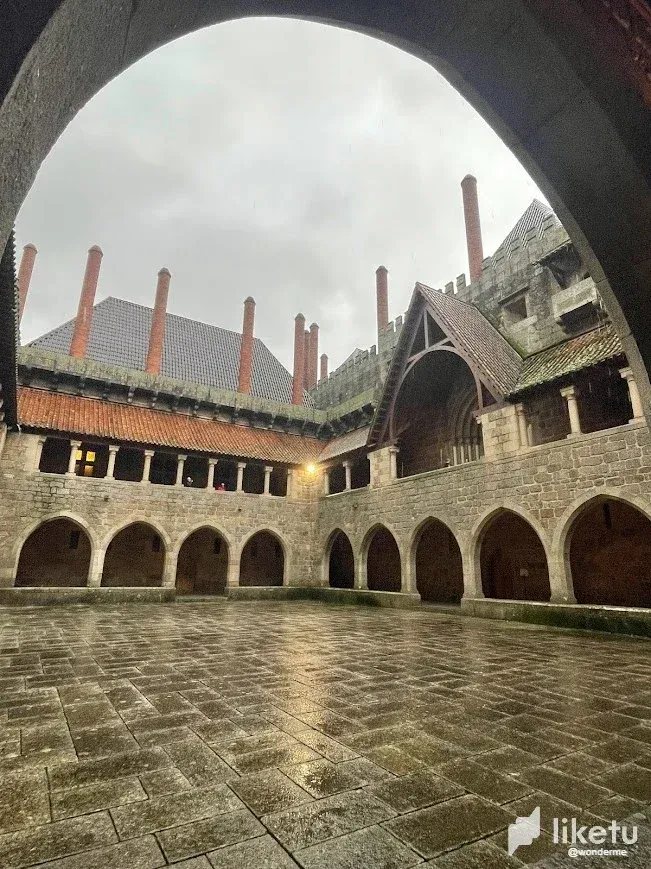
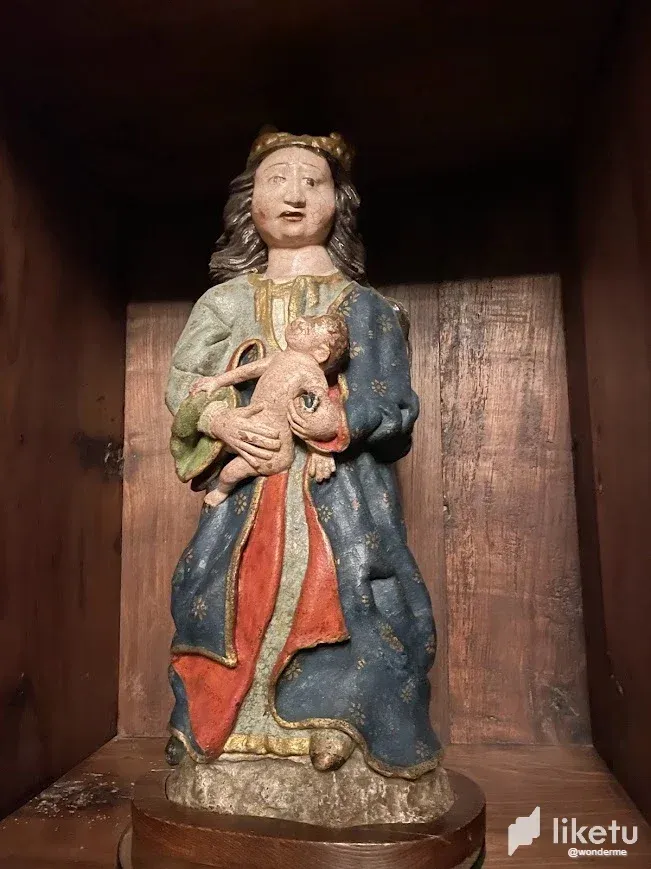
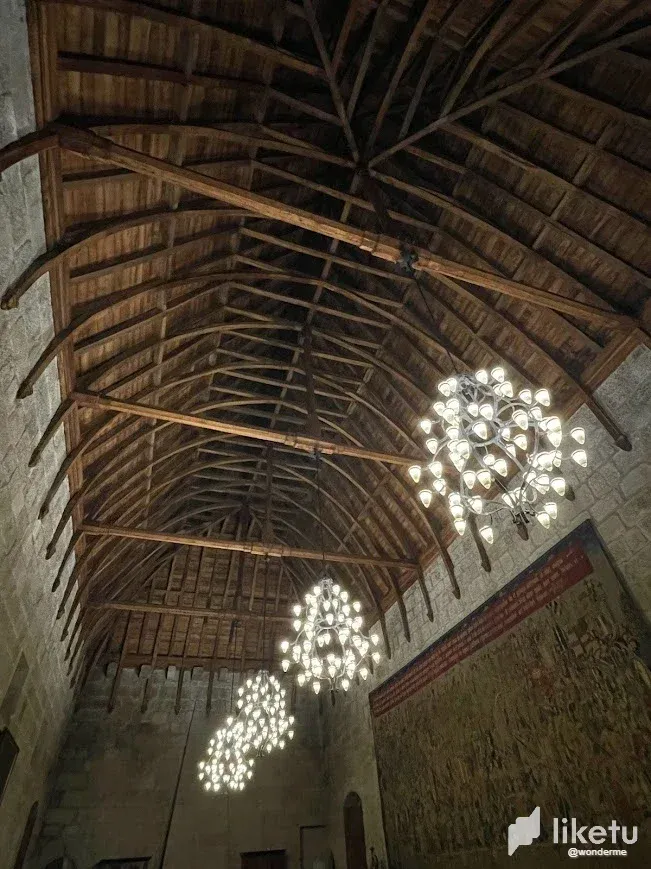
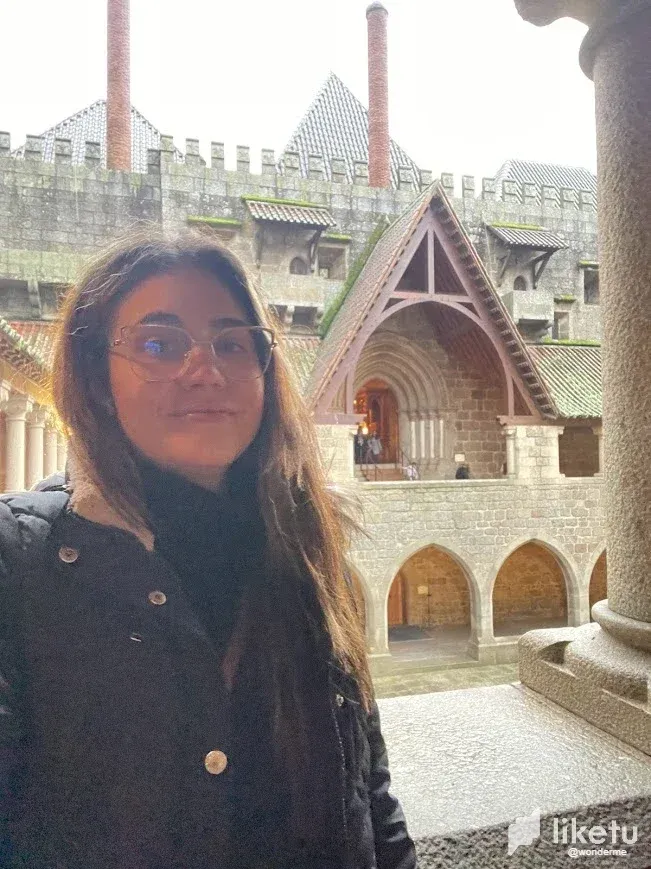
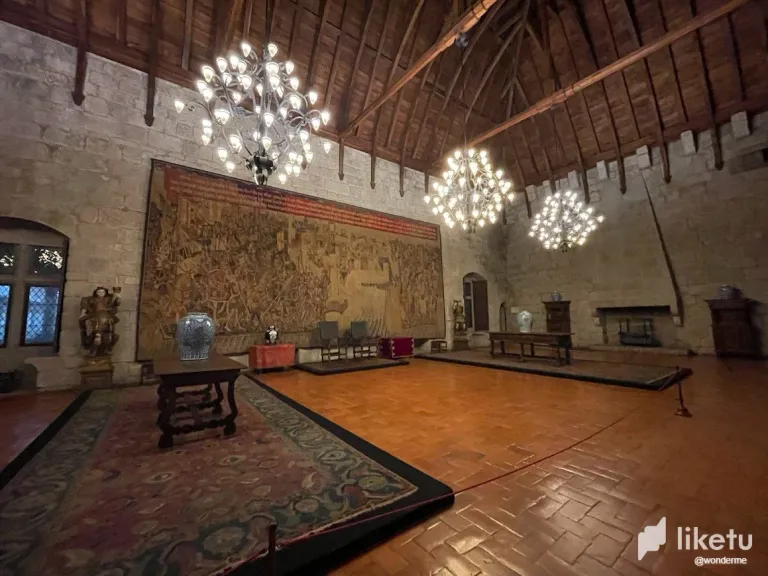
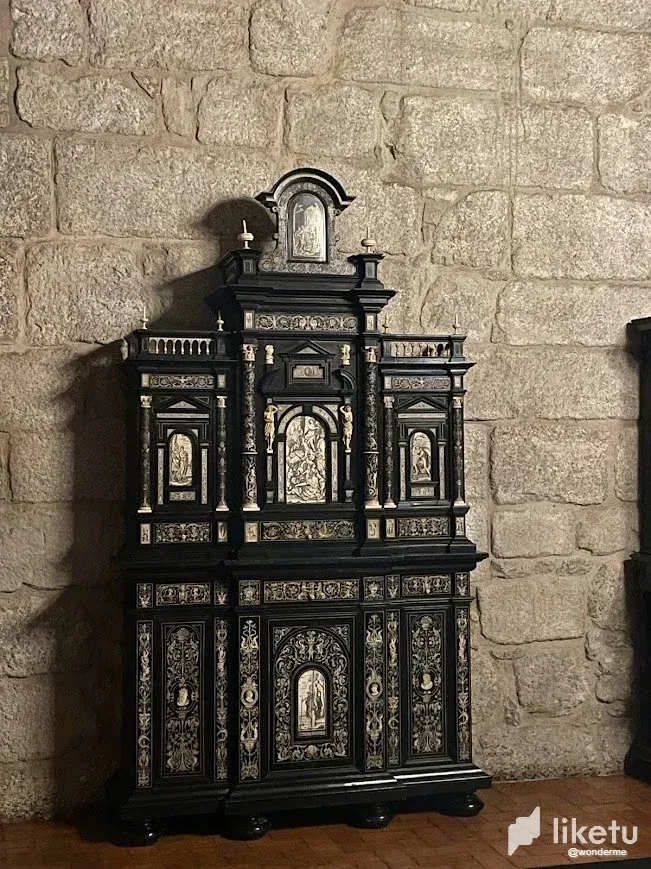
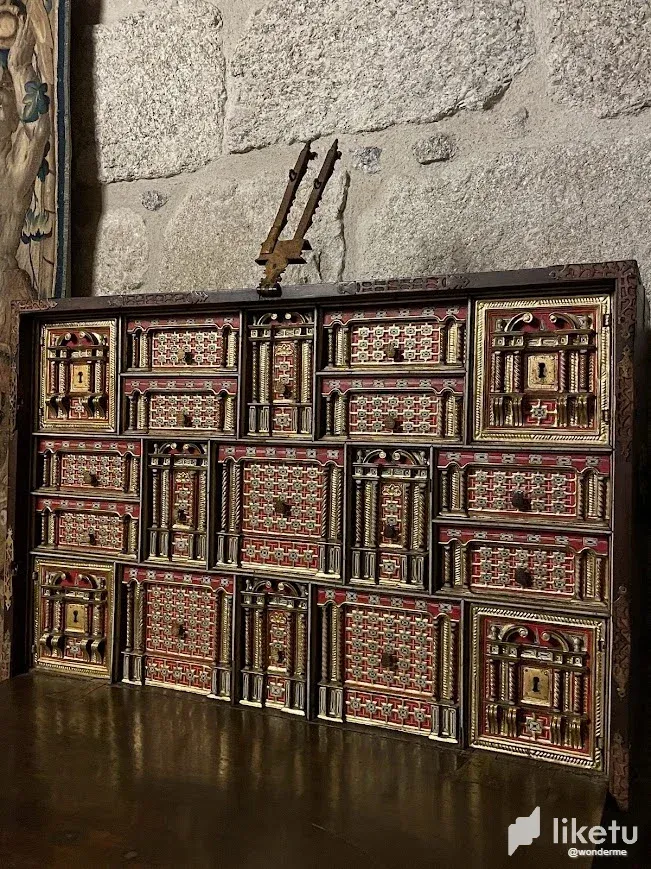
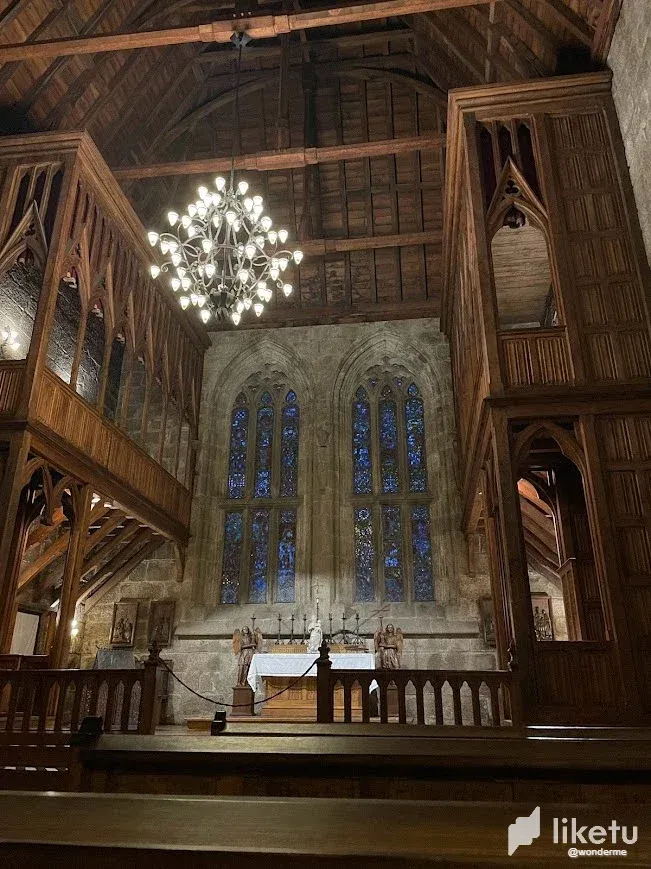
¡Hola viajeros! Hoy los llevaré conmigo a la aventura de visitar un lugar muy, muy antiguo. Hace un par de meses, visité el pueblo de Guimarães en Portugal. En este pueblo se dice que nació Portugal y el Castillo de Guimarães tiene un rol importante en toda esta historia. El Castillo de Guimarães fue construido en el siglo X, o al menos eso se cree, pues no se sabe con exactitud cuándo fue su origen. Sin embargo, se data que fue construido por Mumadona Dias, una mujer de la nobleza con la idea de defender la zona de la invasión musulmana.
El pueblo de Guimarães es un lugar muy húmedo; puedes sentir la ropa mojada todo el tiempo y es muy común que llueva en esta zona. Es por esto que nos ven a mi mamá y a mí con sombrillas afuera del gran Castillo, pues ese día estaba lloviendo muy fuerte. Como pueden ver, el castillo tiene un aspecto en su exterior de fortaleza medieval, pues esa fue su función inicial: proteger. Además, produce la sensación de estar en un lugar donde hubo guerras hace mucho tiempo. Si alguno vio la serie Outlander, quizá entenderá por qué me dio la sensación de ser un personaje en un cuento medieval cuando lo visité.
La entrada al Castillo de Guimarães cuesta tan solo 2 euros, aunque en esta oportunidad no estaban cobrando esta entrada. El castillo es una estructura totalmente abierta; entras y te encuentras prácticamente con un fuerte que no está techado, solo una pequeña sección es cerrada y en ella estaban ofreciendo acceso a una experiencia en 3D de una de las batallas ocurridas en el Castillo. Un dato súper interesante del castillo es que aquí nació el primer rey de Portugal en 1109, el Rey Alfonso I.
A tan solo unos cuantos metros del Castillo de Guimarães se encuentra el "Castillo de los Dos Duques" o "Paço dos Duques de Bragança", que fue construido durante el siglo XV por el mismo Rey Alfonso I, Duque de Bragança, para ser utilizado como residencia por la familia de Bragança. Actualmente, el castillo posee una colección de reliquias como tapices, arte, muebles y otros objetos históricos que dan una vista a la historia portuguesa y la nobleza.
Algunos de los objetos que pudimos observar en el Castillo de los dos Duques me parecieron muy peculiares, como por ejemplo los escritorios antiguos con pequeños gabinetes parecidos a ficheros de bibliotecas, así como también jarrones en cerámica china, tapetes del siglo XV de grandes dimensiones colgados en las paredes que a través de imágenes relataban historias como la guerra púnica.
En las fotos pueden ver el Salón de Los Duques, que tiene un techo característico en madera con forma de barco y grandes candelabros. También la capilla de San Miguel, que fue reformada en madera. Otra de las fotos muestra una figura de la Virgen María sosteniendo al niño Jesús; esta figurita data del siglo XVI y fue tallada en Caliza, su autor es desconocido.
El pueblo de Guimarães es rico en cultura e historia portuguesa. Más adelante les seguiré dando más detalles sobre este fascinante lugar. ¿Sabías que Guimarães no solo es rico en historia, sino que también en este pueblo se lleva a cabo el ADEGA, uno de los festivales de música electrónica más importantes del país?
English Here!
Hello travelers! Today I'll take you with me on the adventure of visiting a very, very ancient place. A couple of months ago, I visited the town of Guimarães in Portugal. In this town, it is said that Portugal was born, and the Guimarães Castle plays an important role in all this history. Guimarães Castle was built in the 10th century, or at least that is believed, as its exact origin is not known. However, it is dated to have been built by Mumadona Dias, a noblewoman with the idea of defending the area from Muslim invasion.
The town of Guimarães is a very humid place; you can feel your clothes damp all the time, and it's very common for it to rain in this area. That's why you'll see my mom and me with umbrellas outside the great Castle, as it was raining heavily that day. As you can see, the castle has an exterior appearance of a medieval fortress, as that was its initial function: to protect. Also, it gives the feeling of being in a place where there were wars a long time ago. If anyone has seen the Outlander series, perhaps they will understand why I felt like a character in a medieval tale when I visited it.
The entrance to Guimarães Castle costs only 2 euros, although they were not charging this fee on that occasion. The castle is a completely open structure; you enter and you practically find yourself in a fort that is not roofed, only a small section is closed, and there they were offering access to a 3D experience of one of the battles that occurred in the Castle. An extremely interesting fact about the castle is that the first king of Portugal was born here in 1109, King Alfonso I.
Just a few meters from Guimarães Castle is the "Castle of the Two Dukes" or "Paço dos Duques de Bragança", which was built during the 15th century by the same King Alfonso I, Duke of Bragança, to be used as a residence by the Bragança family. Currently, the castle has a collection of relics such as tapestries, art, furniture, and other historical objects that provide a view of Portuguese history and nobility.
Some of the objects we were able to observe in the Castle of the Two Dukes seemed very peculiar to me, such as the ancient desks with small cabinets resembling library files, as well as Chinese ceramic vases, 15th-century tapestries of large dimensions hanging on the walls that through images narrated stories like the Punic War.
In the photos, you can see the Hall of the Dukes, which has a characteristic wooden ceiling shaped like a boat and large chandeliers. Also, the Chapel of San Miguel, which was renovated in wood. Another photo shows a figure of the Virgin Mary holding the baby Jesus; this figurine dates from the 16th century and was carved in Limestone; its author is unknown.
The town of Guimarães is rich in Portuguese culture and history. Later, I will continue to give you more details about this fascinating place. Did you know that Guimarães is not only rich in history, but also hosts ADEGA, one of the country's most important electronic music festivals?
For the best experience view this post on Liketu
Congratulations, your post has been added to Pinmapple! 🎉🥳🍍
Did you know you have your own profile map?
And every post has their own map too!
Want to have your post on the map too?